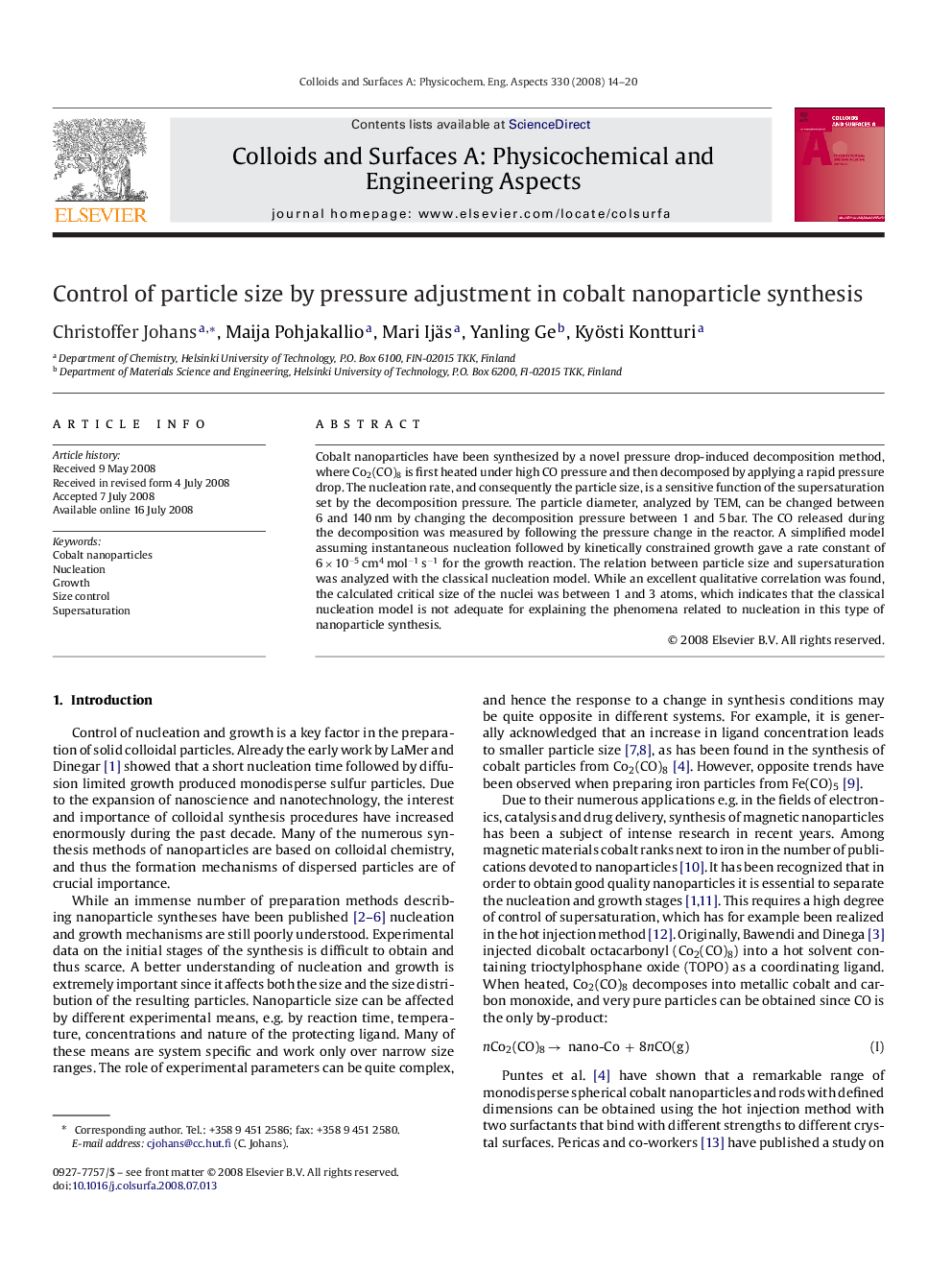| Article ID | Journal | Published Year | Pages | File Type |
|---|---|---|---|---|
| 596558 | Colloids and Surfaces A: Physicochemical and Engineering Aspects | 2008 | 7 Pages |
Cobalt nanoparticles have been synthesized by a novel pressure drop-induced decomposition method, where Co2(CO)8 is first heated under high CO pressure and then decomposed by applying a rapid pressure drop. The nucleation rate, and consequently the particle size, is a sensitive function of the supersaturation set by the decomposition pressure. The particle diameter, analyzed by TEM, can be changed between 6 and 140 nm by changing the decomposition pressure between 1 and 5 bar. The CO released during the decomposition was measured by following the pressure change in the reactor. A simplified model assuming instantaneous nucleation followed by kinetically constrained growth gave a rate constant of 6 × 10−5 cm4 mol−1 s−1 for the growth reaction. The relation between particle size and supersaturation was analyzed with the classical nucleation model. While an excellent qualitative correlation was found, the calculated critical size of the nuclei was between 1 and 3 atoms, which indicates that the classical nucleation model is not adequate for explaining the phenomena related to nucleation in this type of nanoparticle synthesis.
